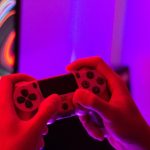Elon Musk’s legal team returned to a Delaware courtroom, urging Judge Kathaleen McCormick to reconsider her earlier ruling that invalidated the Tesla CEO’s $56 billion compensation package. The contentious pay deal, which shareholders ratified twice, has become a focal point of legal debate. The case underscores the tension between judicial oversight and shareholder democracy.
Judge McCormick initially declared Musk’s pay package invalid in January, citing the sum as “unfathomable.” Shareholders, however, ratified the pay in June, reigniting legal arguments. Attorneys are now presenting this second ratification to challenge the initial decision. Judge David Ross emphasized the importance of respecting shareholder votes.
Shareholder Democracy
“Honoring the shoulder vote would affirm the strength of our corporate system. This was stockholder democracy working.”
Ross stated in defense of the shareholders’ decision. The argument hinges on the principle that investor votes, made in good faith, should be upheld by the court. The legal team argues that the ratification represents a legitimate corporate decision by Tesla’s owners.
Legal Precedents
The absence of legal precedent complicates the situation. Delaware law does not have a history of post-trial shareholder votes reversing judicial decisions deemed as breaches of fiduciary duty. This unique scenario might set a new legal benchmark, raising concerns among judges about potential future challenges to their rulings.
Confusion surrounds how Delaware law might override an overwhelming shareholder vote. One attorney expressed disbelief that the law could invalidate a decision made by the company’s owners. Donald Verrilli, representing an individual shareholder, stressed the significance of the majority’s voice in corporate matters.
Legal and Corporate Dynamics
Analyzing similar legal battles reveals a pattern of tension between court rulings and shareholder decisions. Previous cases have also questioned the balance of power in corporate governance. The ongoing debate in Delaware highlights these enduring conflicts and raises issues about the role of judicial oversight in corporate affairs.
The implications extend beyond Tesla, with potential ramifications for executive compensation packages and shareholder rights across various industries. Legal experts are watching closely, anticipating how this case might influence future corporate governance disputes.
As Judge McCormick deliberates, the outcome of Musk’s pay package remains uncertain. The decision could establish significant precedents regarding the interplay between court rulings and shareholder democracy. Observers await a resolution that may redefine corporate governance norms and executive compensation standards.










